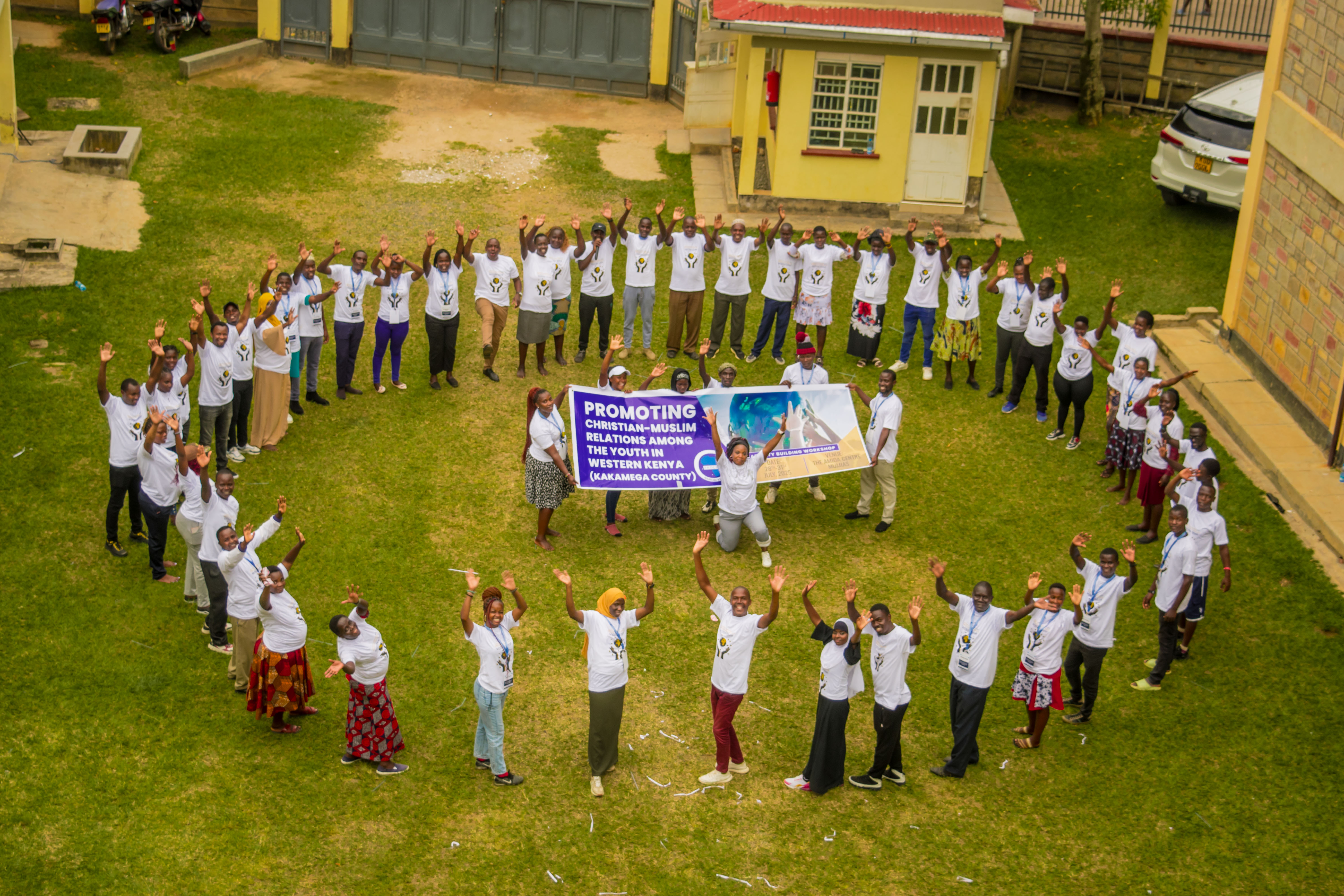
PROCMURA’s Western Kenya Youth Forum on Course to Building Cohesive and Inclusive Communities
- By PROCMURA
- Events
- Hits: 431
With an estimated 70 per cent of the people in sub-Saharan Africa being under the age of 30, the continent’s future undoubtedly depends on a young generation that is energetic, inventive, and highly influential. These young people are a valuable asset to the continent for its sustainable development and peace. However, they also remain highly vulnerable to malicious actors seeking to divide the society along political and religious lines and also recruit them into radicalisation and violent extremism. The Programme for Christian-Muslim Relations in Africa (PROCMURA) recognises this reality and is deliberately investing in the young people across the continent through its Youth and Interreligious Cooperation programme by empowering them to become agents of resilience, religious tolerance, trust, and practical peace initiatives that promote peace and peaceful coexistence at the community level.
Through this programme, PROCMURA provides safe, structured spaces where young people explore identity, learn and appreciate their religious differences, learn to recognise and resist manipulation, practise interfaith cooperation, and develop locally-contextualised campaigns that unite their communities even beyond religious divides.

It is within this framework that PROCMURA convened a four-day interfaith workshop in Mumias, Kakamega County, Western Kenya, in late July 2025 under the theme “Promoting Christian-Muslim Relations Among the Youth in Western Kenya.” The event, organised as part of the newly launched PROCMURA Western Kenya Youth Forum, brought together young Christian and Muslim youth leaders for training and practical planning on how the youth can be actively involved in building cohesive communities at the grassroots.

From the outset, PROCMURA’s Team Leader, Joy Wandabwa, who shared with the young people her opening remarks, reminded them of the most important place that the youth hold in developing any given community and how much stake they have in making their respective communities not only peaceful but also ones to be emulated across the continent. Her words underlined the very essence of the workshop. The youth are at the heart of PROCMURA’s Overall Goal of working towards “an African continent where Christians and Muslims uphold the principles of religious freedom and all that it entails; constructively relate to promote peace in the society and peaceful coexistence between Christian and Muslim communities; jointly respond to environmental challenges,” Ms. Joy Wnadabwa.
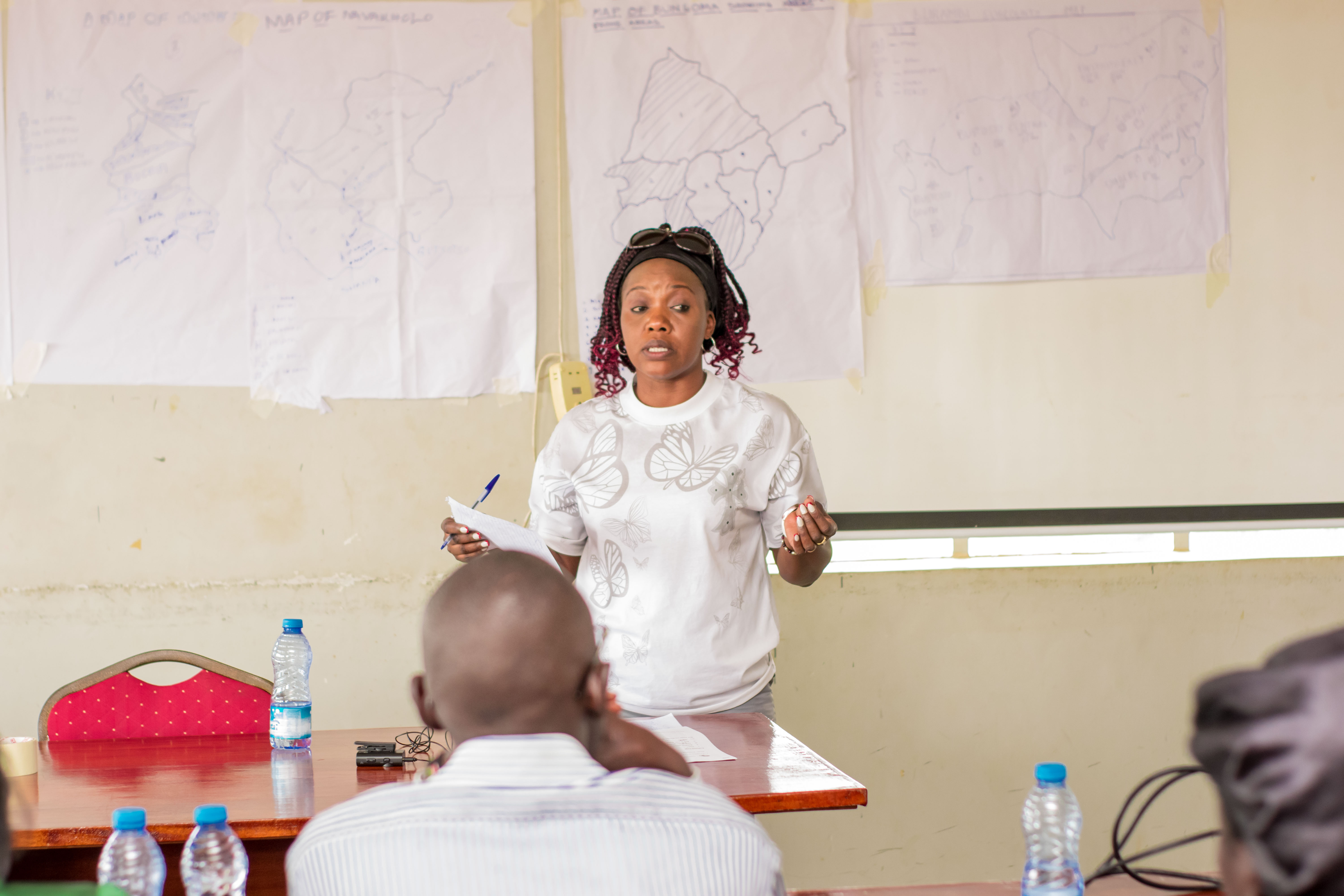
The workshop provided a platform for not only the youth but also faith leaders, academics, and grassroots activists.
Rev. Fredrick Kodia of the Anglican Church of Kenya challenged the youth leaders to reflect on how Christians can relate to people of different faiths. “Respect must always be the starting point when dealing with the religious other,” he emphasised.
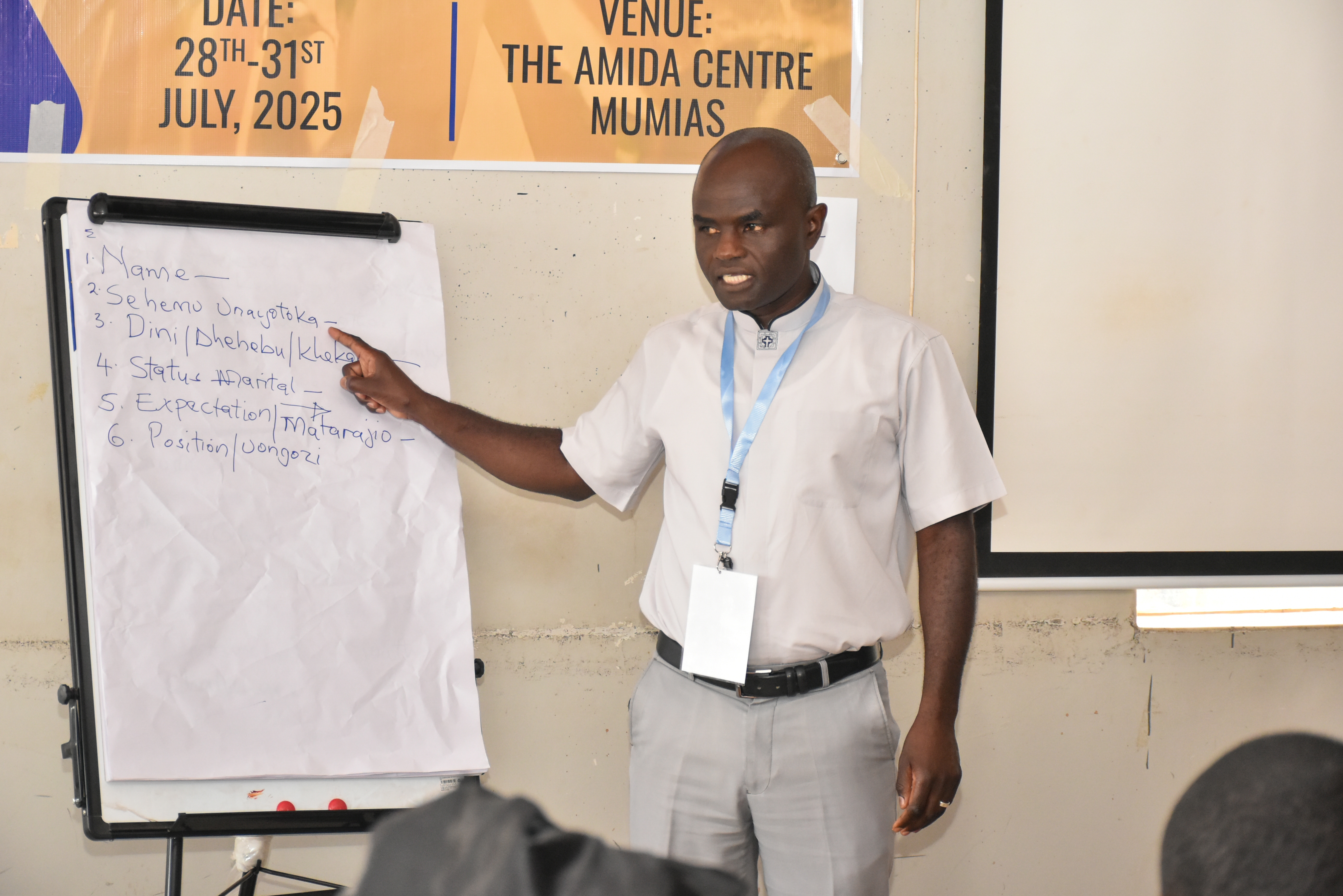
On his part, Muslim leader, Imam Khalid Burhan, who echoed Rev. Kodia’s words, reminded the young people that compassion is central to Islam: “Our faith calls us to understand and embrace others, not to push them away because they believe differently.”
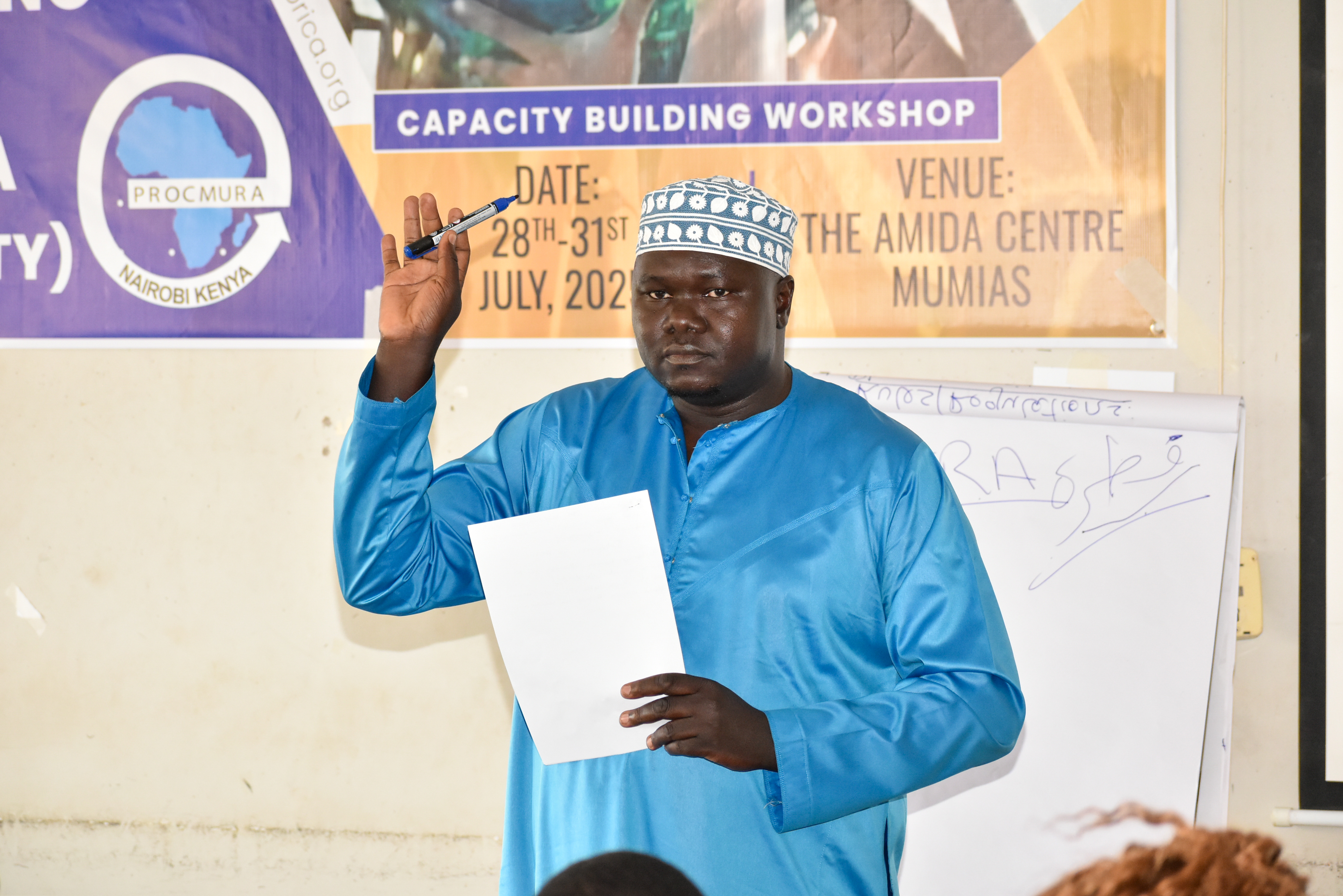
Lecturer Lydia Anyonje, a lecturer at the Masinde Muliro University, delivered a sobering reality check, warning that extremist narratives are increasingly targeting young people. “Radicalisation thrives where there is frustration and a lack of opportunity. You must remain vigilant and choose peace, even when manipulation seeks to push you the other way,” she cautioned.
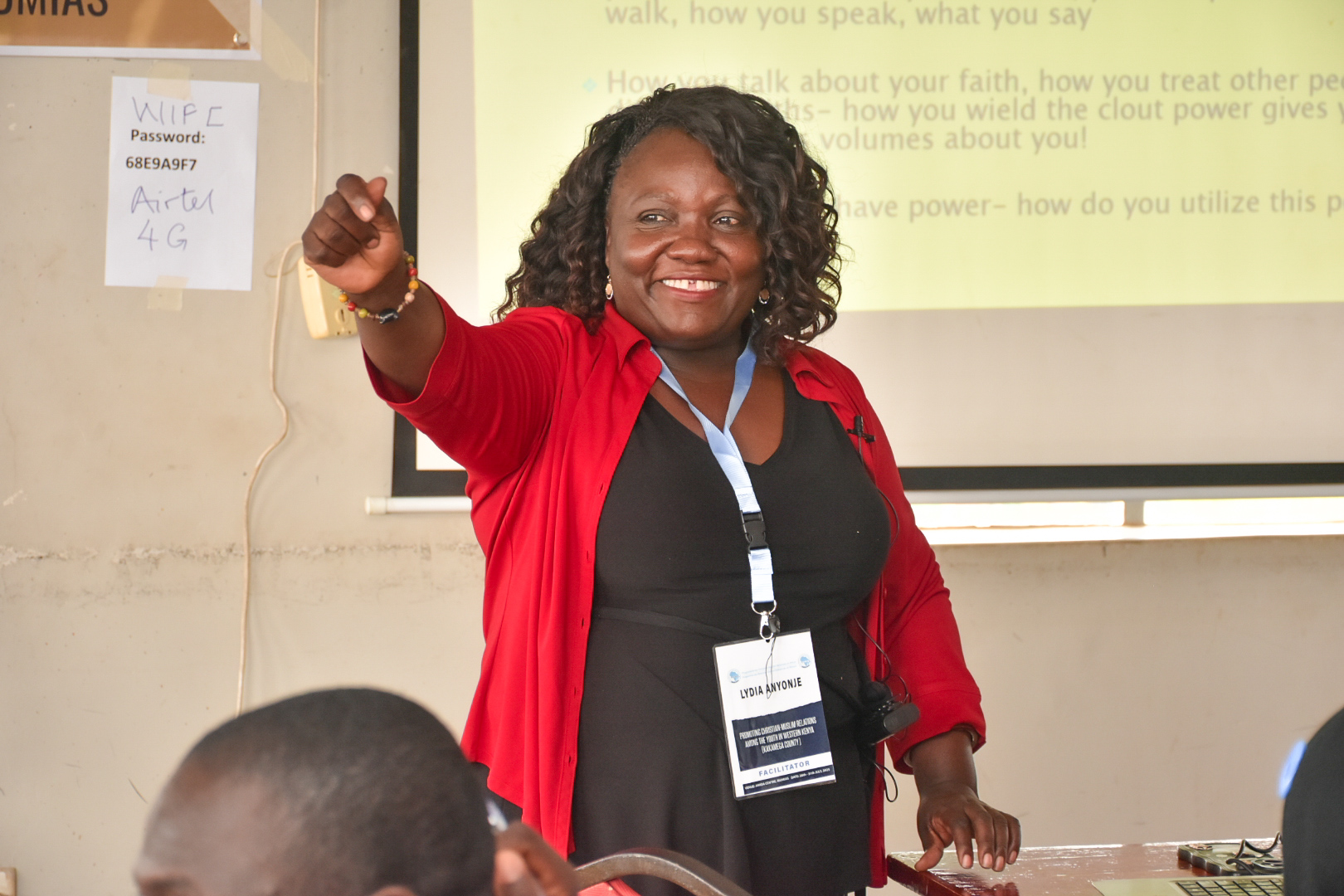
Beyond reflection, the workshop was highly practical and incorporated the current realities of the spaces that most young people find themselves in. Participants learned how to use digital platforms responsibly to amplify peace messages and combat divisive narratives. One participant remarked during group discussions: “Social media is where most of us spend our time. If we don’t flood it with positive messages and alternative narratives, then someone else will fill that space with division.”
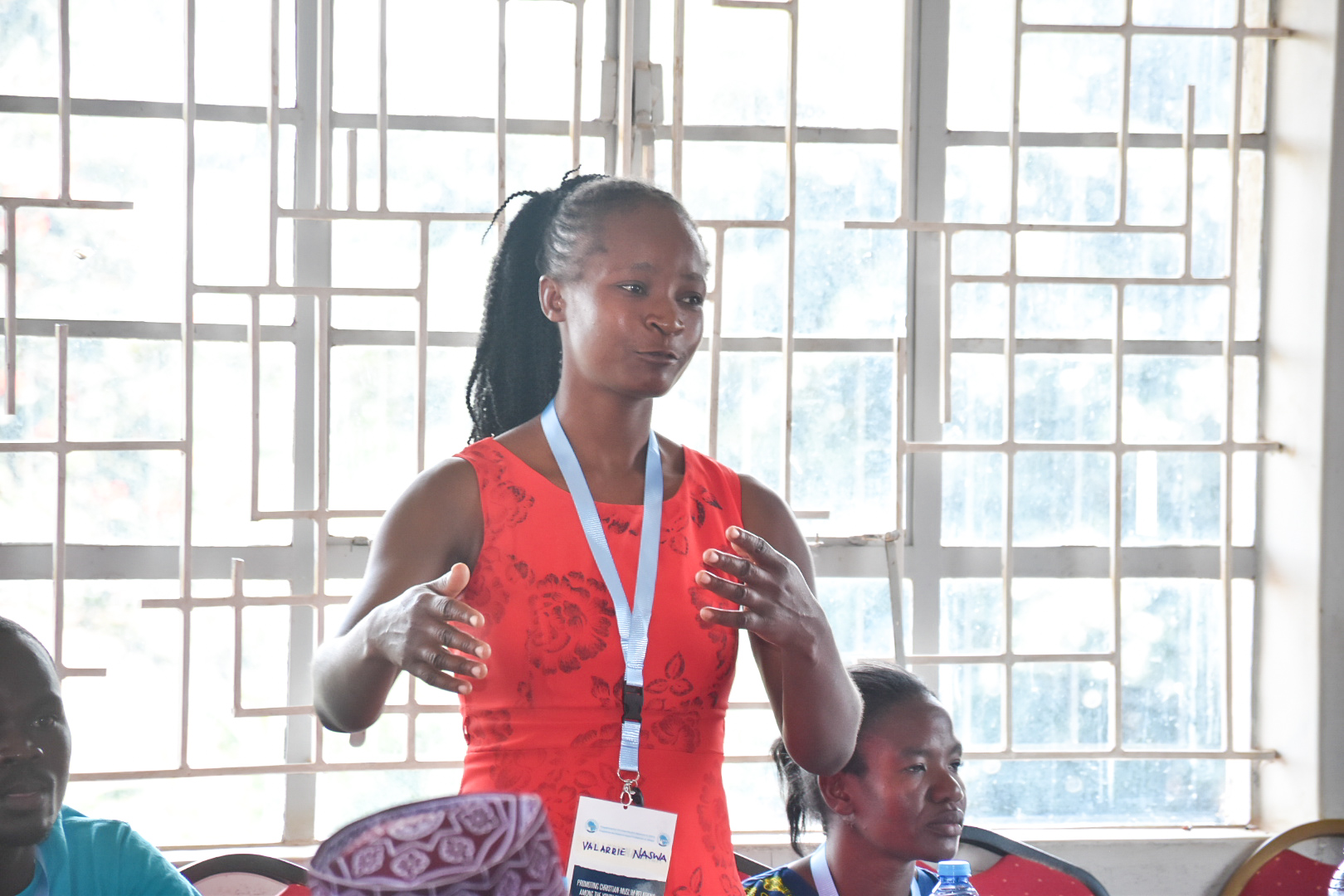
Mohammed Juma and Phoebe Kitutu, who were appointed interim leaders of the PROCMURA Western Kenya Youth Forum, drew from their grassroots work in Bungoma to demonstrate how small local actions can have a significant impact. “When we organised joint activities between Christian and Muslim youth, stereotypes began to fade. Suddenly, we were teammates, not rivals. This is the spirit that we’re currently and continuously inculcating in the young people from our region, which had, for a long time, suffered mistrust issues between these two main religions – Christianity and Islam,” Mohammed shared, emphasising the power of lived experience.
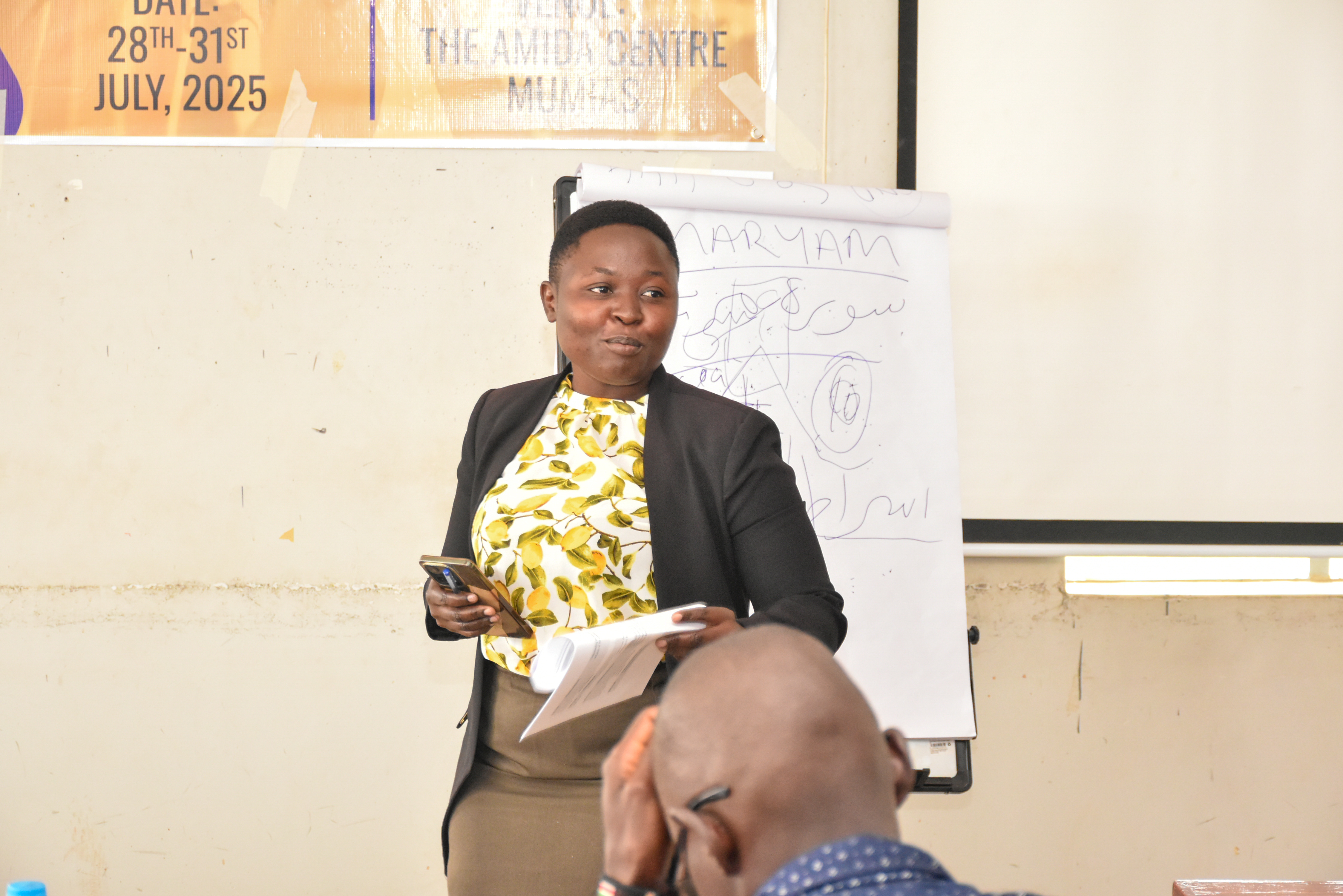
Mohammed Juma and Phoebe Kitutu are among the more than one hundred and twenty youth leaders who were trained earlier in the year, 2025.
The youth had an opportunity to design contextualised action plans and campaigns to challenge prejudice and encourage interreligious cooperation at the grassroots, while mapping tensions in their communities and brainstorming realistic interventions. The outdoor team building iced the workshop with tailored activities meant to drive the messages of religious tolerance and peacebuilding home, away from the formal training set-up. Here, they engaged in practical activities that help them transcend religious divides and break the stereotypes associated with the religious other.
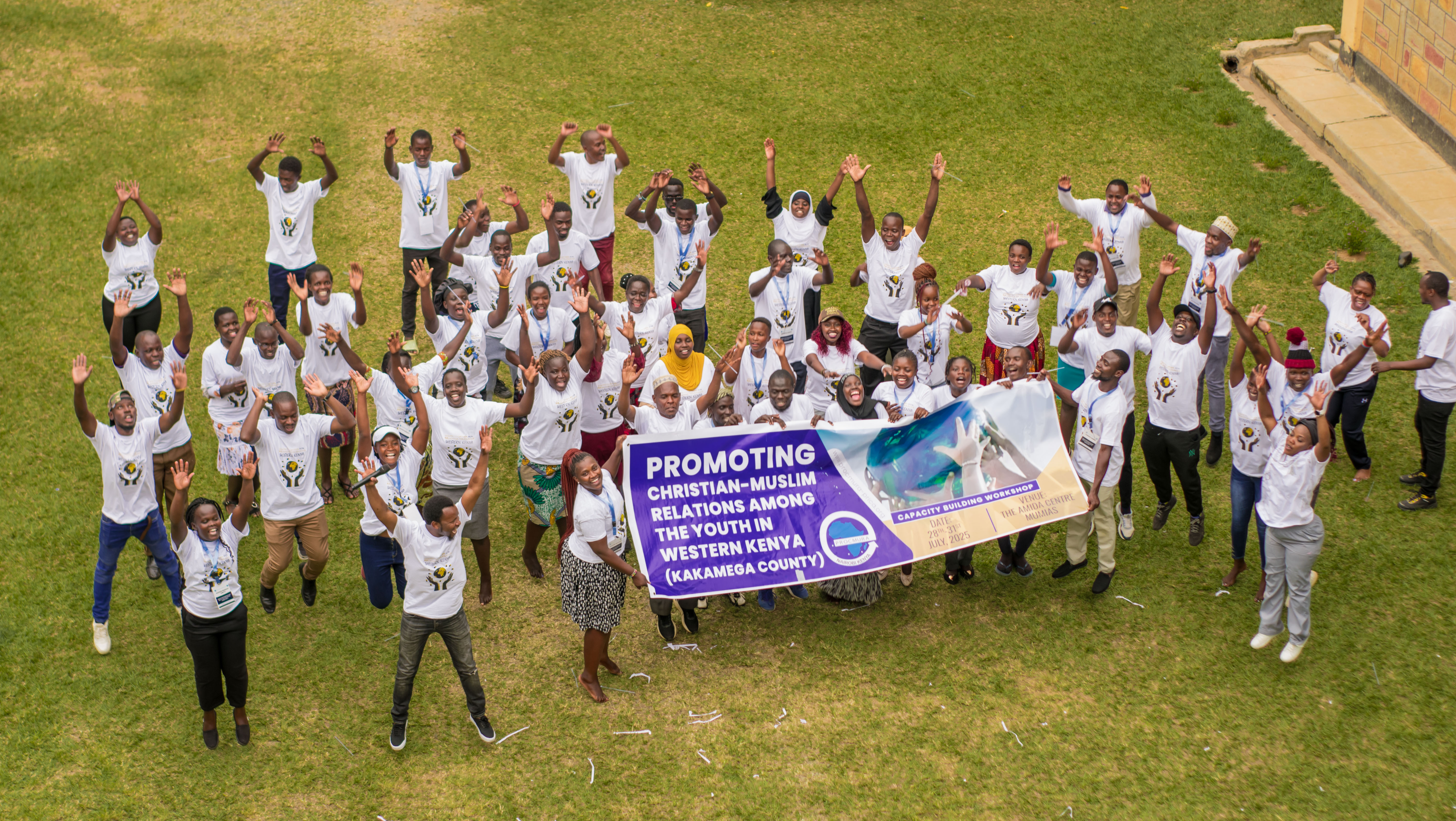
The programme concluded with team presentations, the awarding of certificates, and the formal recognition of participants as Youth Peace and Interfaith Ambassadors, prepared to carry the work forward within their communities.
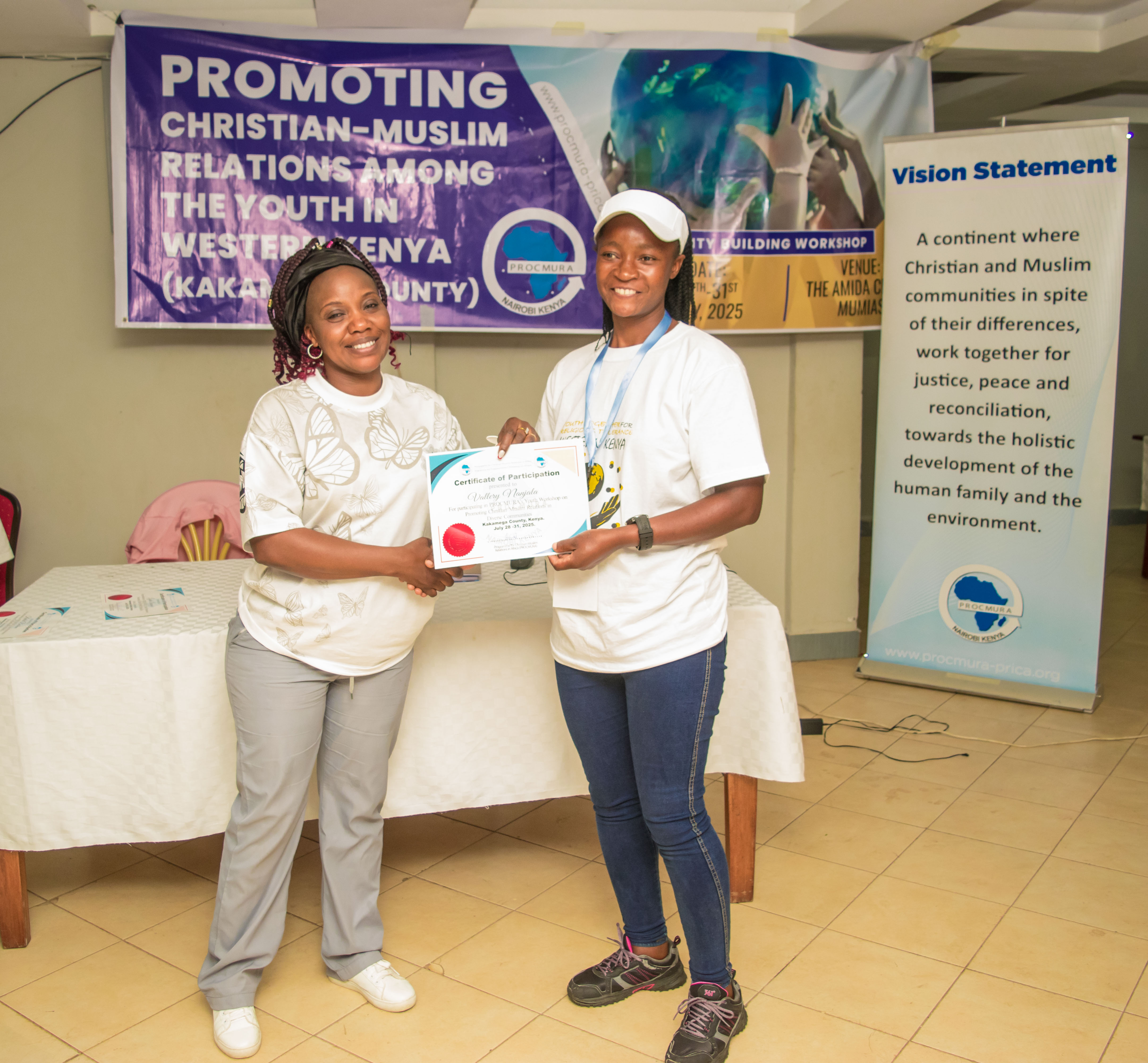
The Mumias experience highlighted PROCMURA’s approach in equipping youth with knowledge, fostering interfaith relationships, and supporting implementation to ensure training results in lasting action. This is important because young people are both the most targeted by divisive actors and the most capable of reshaping narratives in schools, places of worship, and online spaces. Training that combines theological reflections with practical advocacy and peer mentorship helps turn youthful energy into constructive leadership rather than being driven by grievances.
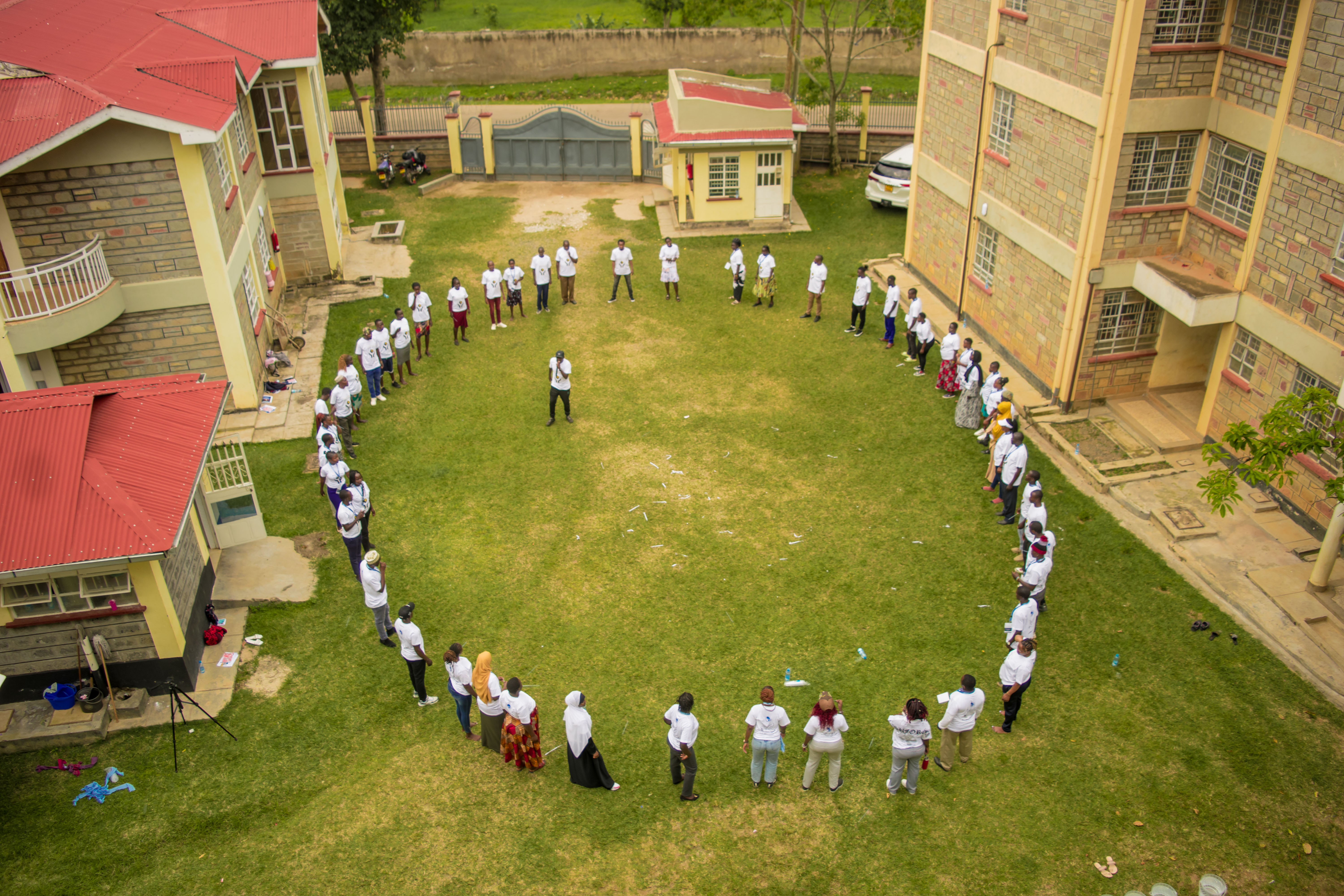
The insights from the Mumias Youth Interfaith Workshop confirmed that the most effective way to prevent radicalisation and division is to empower young people to act as ambassadors of peace. As one participant summed it up during the closing reflections: “We may come from different religions, but we share the same community. If we don’t work for peace together, we will all lose together.”
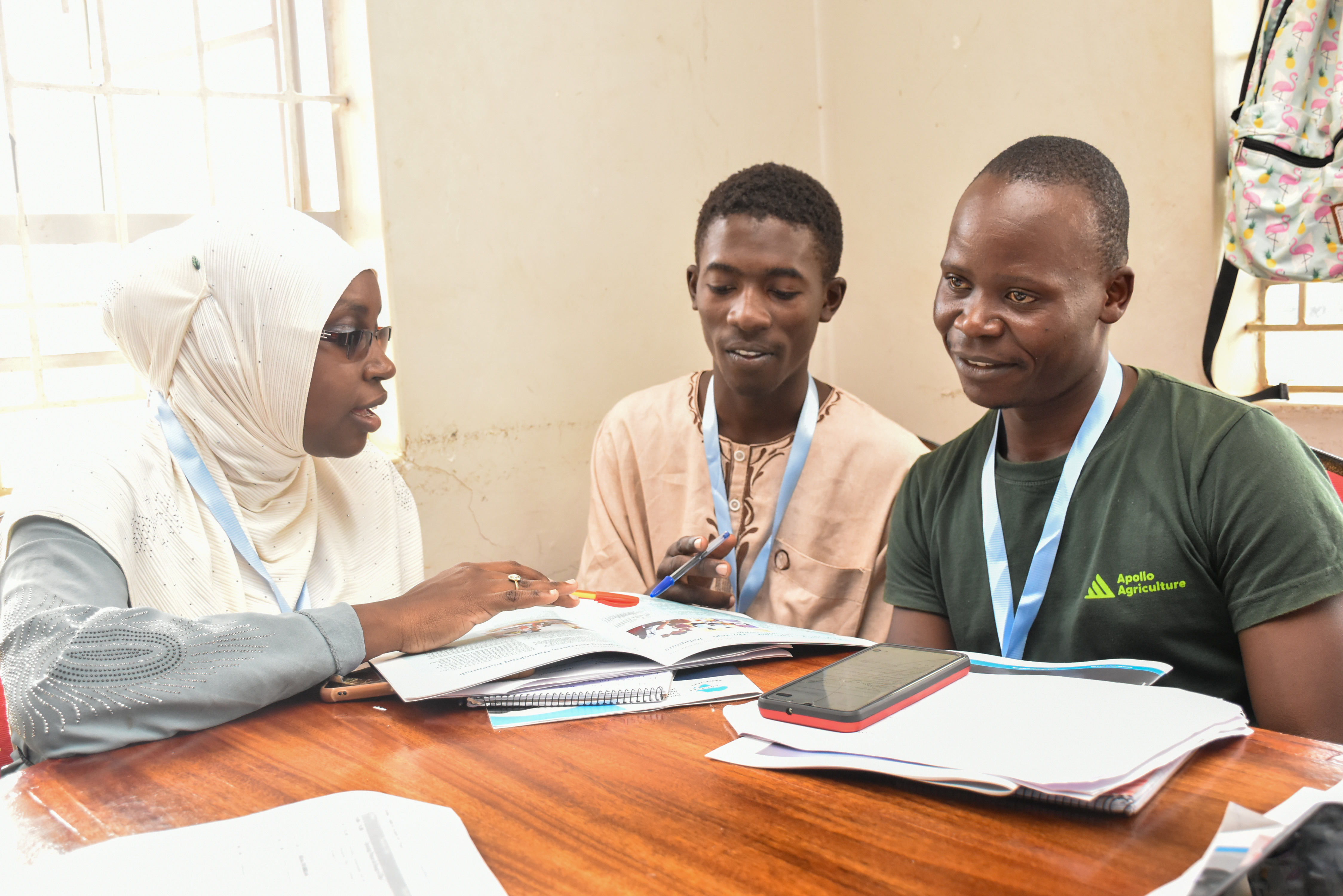
PROCMURA’s Youth and Interreligious Cooperation programme is transforming that insight into action across the continent, and the Western Kenya Youth Forum is an encouraging new element in that network. Supporting this kind of work is not charity; it is a strategic investment in Africa’s security, development, and shared future.

